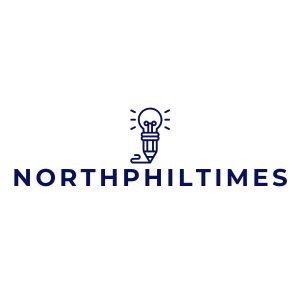Planning a trip can feel like trying to solve a Rubik’s Cube blindfolded. With flights, accommodations, and activities swirling around, it’s easy to get lost in the chaos. But fear not! Travel organization is the secret sauce that transforms a potential headache into a smooth adventure.
Table of Contents
ToggleImportance Of Travel Organization
Effective travel organization streamlines the entire travel process. It reduces stress by providing a structured approach to planning. Efficiently managing details, such as flights, accommodations, and activities, maximizes overall enjoyment. A well-organized trip allows travelers to focus on experiences rather than logistical challenges.
Cost savings arise from thorough planning. Research indicates that travelers who compare prices and book early often find significant discounts. Strategic organization of itineraries leads to better time management, allowing for more exploration and fewer missed opportunities.
Safety also improves with effective travel organization. Planning includes arranging transportation and understanding local customs. Having a clear agenda ensures awareness of travel risks, enhancing overall security.
Additionally, organized travel fosters meaningful connections. Pre-arranged activities often include local guides and experiences that facilitate interactions. Engaging with local cultures enriches the journey and creates lasting memories.
Flexibility remains important even with meticulous planning. Informed travelers adapt easily to unexpected changes. Remaining organized allows for quick adjustments, ensuring that disruptions don’t derail the overall experience.
Improved communication is a further benefit. Clear documentation of travel plans, such as reservations and itineraries, aids in discussions with travel companions. Sharing organized plans helps keep everyone informed and aligned.
Ultimately, the benefits of travel organization extend beyond the planning phase. Structured trips lead to greater satisfaction and memorable adventures. Travelers who embrace this approach often find their journeys more rewarding.
Key Components Of Effective Travel Organization

Effective travel organization involves several crucial components, each contributing to a seamless travel experience. Understanding these elements enhances one’s ability to navigate the complexities of travel planning.
Itinerary Planning
Creating a detailed itinerary serves as the backbone of any successful trip. A well-structured itinerary lists flights, accommodations, and activities, allowing travelers to visualize their journey. Each day should include specific destinations, activities, and even dining options. Flexibility plays a role; planned itineraries can adjust to unexpected events, ensuring travelers still enjoy their adventures. Incorporating local attractions and off-the-beaten-path experiences adds depth to the itinerary. Overall, an organized itinerary maximizes exploration and minimizes wasted time.
Budgeting
Establishing a clear budget is vital to managing travel expenses effectively. Travelers should outline costs for accommodation, transportation, meals, and activities, ensuring funds are available for all aspects of the trip. Tracking these expenses requires using budgeting apps or spreadsheets, allowing for quick adjustments as needed. Opting for early bookings can lead to savings, especially for flights and accommodations. Allocating contingency funds also prepares travelers for unexpected expenses, helping maintain financial control throughout the journey. Therefore, a well-planned budget reduces financial stress and enhances the overall travel experience.
Packing Strategies
Employing effective packing strategies simplifies the travel experience significantly. Start by creating a packing list tailored to the destination and activities planned. Each traveler should consider clothing, personal items, and travel documents essential for the trip. Packing versatile clothing that can be mixed and matched minimizes luggage weight. Using packing cubes or compression bags maximizes space and organizes belongings efficiently. Additionally, checking weather forecasts aids in selecting appropriate attire. Smart packing leads to a smooth journey, allowing travelers to focus on enjoying their adventure rather than worrying about forgotten essentials.
Tools And Resources For Travel Organization
Numerous tools and resources exist to aid in travel organization. Utilizing these effectively enhances planning and maximizes enjoyment during trips.
Mobile Apps
Travelers can benefit from various mobile apps designed for organization. Popular options include TripIt, which consolidates travel details into one itinerary. Google Maps facilitates navigation, while Airbnb helps find unique accommodations. FlightAware provides real-time flight tracking, ensuring up-to-date information. Additionally, packing apps like PackPoint generate customized lists based on activities and destination. Each app serves a unique purpose that streamlines specific aspects of the travel experience.
Travel Websites
Numerous travel websites offer valuable resources for planning. Expedia stands out for booking flights, hotels, and rental cars in one place. Kayak enables users to compare prices across multiple platforms, ensuring the best deals. For itinerary inspiration, Lonely Planet serves as a comprehensive guide. Moreover, TripAdvisor features user-generated reviews, helping travelers make informed decisions about attractions and restaurants. These websites empower travelers with the information they need to organize their trips efficiently.
Common Mistakes In Travel Organization
Travelers often overlook the importance of a detailed itinerary. A lack of planning can lead to missed activities or wasted time. Budgeting inadequately poses another significant error. Travelers may underestimate costs, resulting in financial strain during a trip.
Packing too much creates unnecessary hassles. Excess luggage complicates airport navigation and transportation. Forgetting essential items, such as chargers or travel documents, results in avoidable stress. Travelers should always check packing lists to ensure they have what they need.
Relying solely on online reviews can mislead. Some reviews might not reflect actual experiences, leading to poor decisions. Ignoring travel insurance presents a major risk. Unforeseen events, such as cancellations or medical emergencies, can disrupt plans. Having coverage protects against significant losses.
Over-scheduling activities may limit relaxation. An overly packed itinerary can lead to exhaustion. Allowing time for downtime enhances the travel experience. Travelers often miss the charm of unexpected discoveries when focused solely on scheduled events.
Failing to research local customs creates potential cultural misunderstandings. Understanding social norms and etiquette helps avoid unintentional offenses. Neglecting to plan for transportation can complicate logistics. Knowing how to navigate public transport or arrange rideshare options saves time.
Lastly, underestimating the impact of flexibility can cause problems. Travel plans may change unexpectedly due to weather or other factors. Being adaptable allows travelers to embrace new opportunities while exploring. Recognizing these common mistakes leads to a more enjoyable travel experience.
Travel organization transforms a chaotic journey into a memorable adventure. By investing time in planning itineraries budgets and packing strategies travelers can embrace experiences without the weight of logistical stress. Utilizing tools and resources not only simplifies the process but also enhances the overall travel experience.
Awareness of common pitfalls ensures smoother travels and fosters greater enjoyment. With a structured approach travelers can adapt to changes while still maximizing their time and resources. Ultimately effective travel organization leads to richer experiences deeper connections and unforgettable memories. Embracing this mindset allows every journey to unfold seamlessly.





